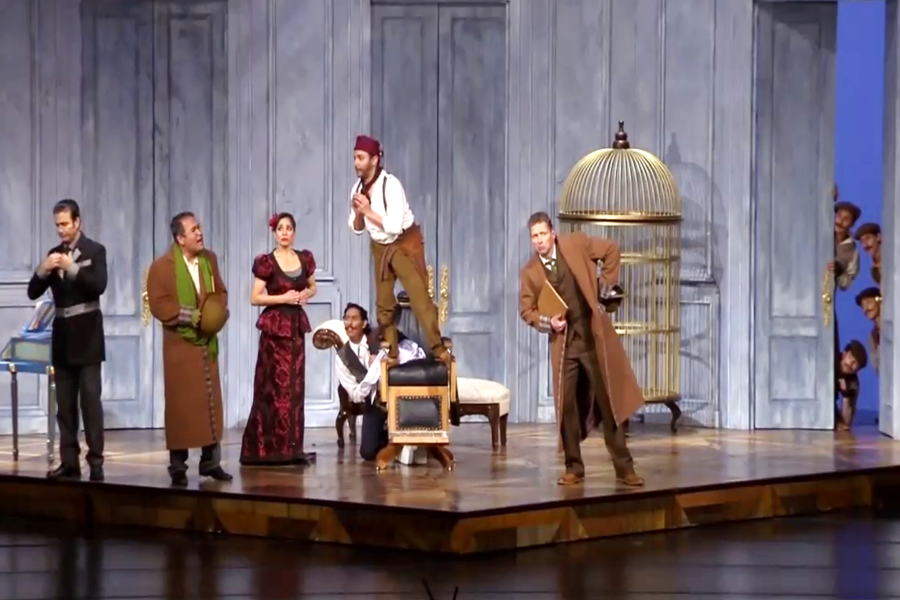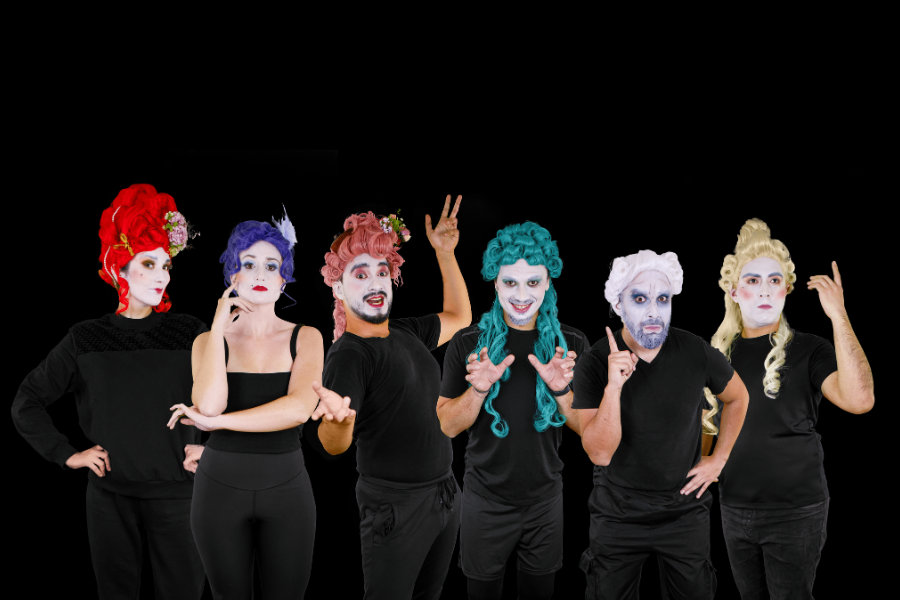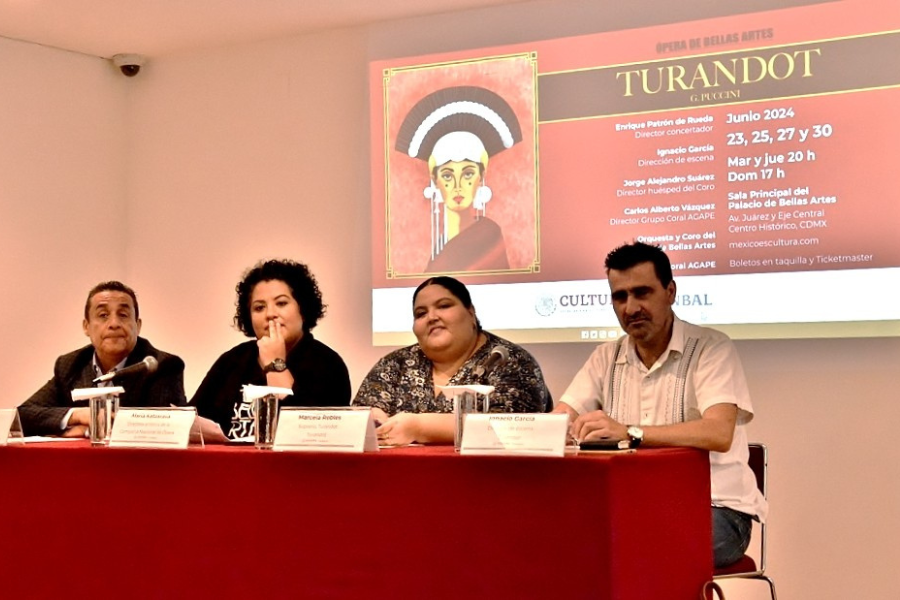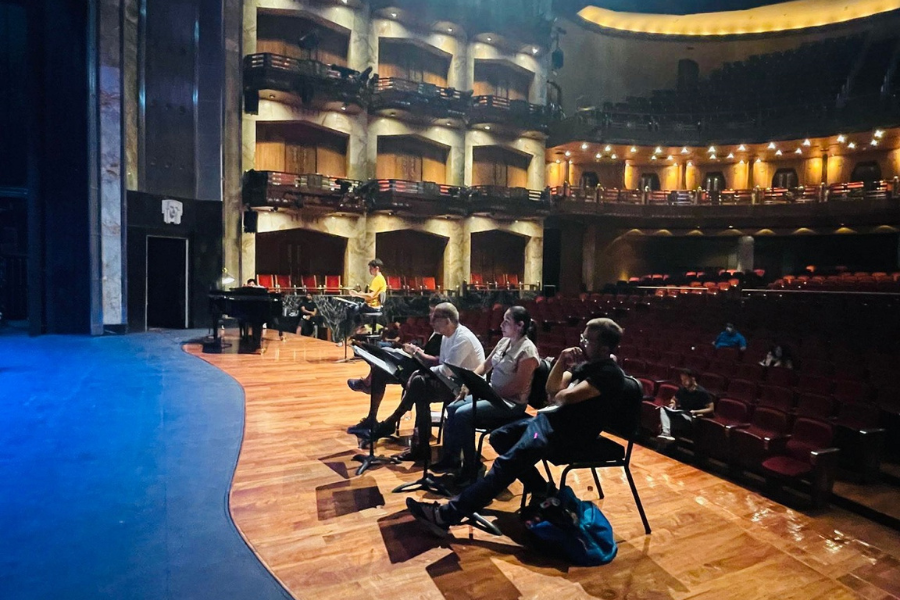Ópera de Bellas Artes transmitirá la divertida ópera «El barbero de Sevilla» de Rossini

El domingo 2 de mayo a las 17:00 horas; se transmitirá «El barbero de Sevilla» de Rossini. Participan el barítono José Adán Pérez, el tenor Javier Camarena, la mezzosoprano Guadalupe Paz y los bajo-barítonos Stefano de Peppo y Carsten Wittmoser, entre otros.
El barbero de Sevilla, de Gioachino Rossini, ópera en dos actos con libreto en italiano de Cesare Sterbini, basado en la comedia homónima de Pierre-Augustin de Beaumarchais, ha trascendido como la ópera cómica por excelencia y revela el genio musical y bufo de su autor.
Se transmitirá el domingo 2 de mayo a las 17:00 horas por la plataforma Contigo en la distancia de la Secretaría de Cultura, el canal oficial de YouTube del Instituto Nacional de Bellas Artes y Literatura (INBAL) y las páginas de Facebook del INBAL y de Ópera de Bellas Artes.
La obra, presentada como parte de la temporada 2012 de Ópera de Bellas Artes, tuvo su estreno en la Torre Argentina, de Roma, el 20 de febrero de 1816, con el título Almaviva, o la precaución inútil, deferencia que tuvo Rossini con Giovanni Paisiello (1740-1816), compositor que 35 años antes había escrito una primera ópera inspirada y nombrada con el mismo título que la comedia de Beaumarchais.
La primera reacción del público fue de rechazo, especialmente por los partidarios fieles a Paisiello; sin embargo, para la tercera función los asistentes abrazaron por completo la nueva ópera y la convirtieron en un absoluto éxito desde entonces y hasta nuestros días.
Giuseppe Verdi expresó respecto de esta obra: “Por la abundancia de auténticas ideas musicales, por sus bríos cómicos y por su declamación veraz, El barbero de Sevilla es la mejor ópera cómica en existencia”.
El conde Almaviva ha llegado a Sevilla con el firme propósito de conquistar a Rosina. Para ello, se hace pasar por el modesto Lindoro, con el fin de no ser apreciado por la joven sólo por su posición social. Después de llevarle serenata, sin éxito, aparece repentinamente su antiguo sirviente, Fígaro, un barbero famoso que tiene ascendente en la casa donde vive la moza. Por él, Almaviva se entera de que la muchacha está a cargo de un tutor, el viejo y severo doctor Bartolo, quien pretende casarse con ella y, de paso, quedarse con sus bienes heredados. El barbero urde una serie de enredos para que los jóvenes puedan encontrarse e intercambiar votos de amor. El ingenio y picardía de Fígaro logran vencer al tutor, a quien no le queda más remedio que renunciar a sus intentos de conquista y ceder a los deseos amorosos del conde y la joven.
Esta producción, que forma parte de la sexta temporada virtual de Ópera de Bellas Artes, fue presentada en el recinto del INBAL en 2012 con un gran equipo creativo: la dirección de escena, la escenografía y la iluminación estuvieron a cargo de Juliana Faesler, apoyada en el diseño de escena y la dirección actoral por Clarissa Malheiros y en el diseño de escenografía por Sergio Villegas, mientras que el vestuario correspondió a Mario Marín.
Respecto a su concepción escénica, Juliana Faesler afirma que se propone “una postura crítica respecto de la violencia y crueldad bajo las que vive Rosina”, con una serie de derechos vulnerados, tanto en su condición de mujer, como en la de ser humano.
El barítono José Adán Pérez encabeza el reparto en el papel de Fígaro, el tenor Javier Camarena representa al conde de Almaviva, la mezzosoprano Guadalupe Paz es la bella Rosina, mientras los bajo-barítonos Stefano de Peppo y Carsten Wittmoser cantan los personajes de don Bartolo y don Basilio, respectivamente. Completan el elenco Celia Gómez como Berta y Amed Liévanos como Fiorello y el Sargento. Participan, asimismo, el Coro y la Orquesta del Teatro de Bellas Artes; el primero dirigido por Xavier Ribes, y todos ellos bajo la batuta del maestro Marco Balderi.





